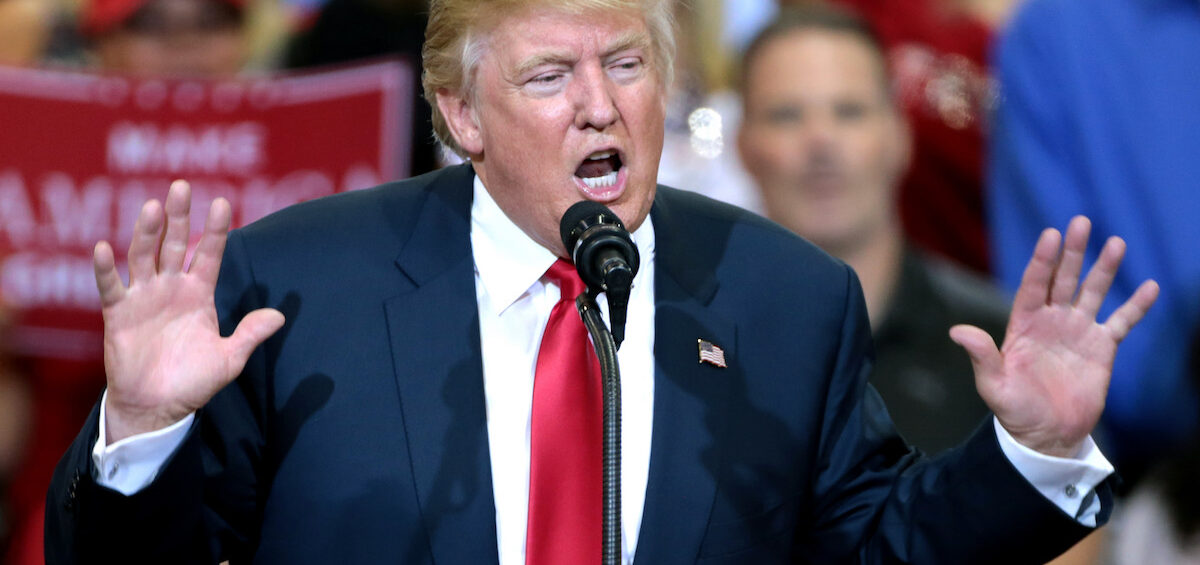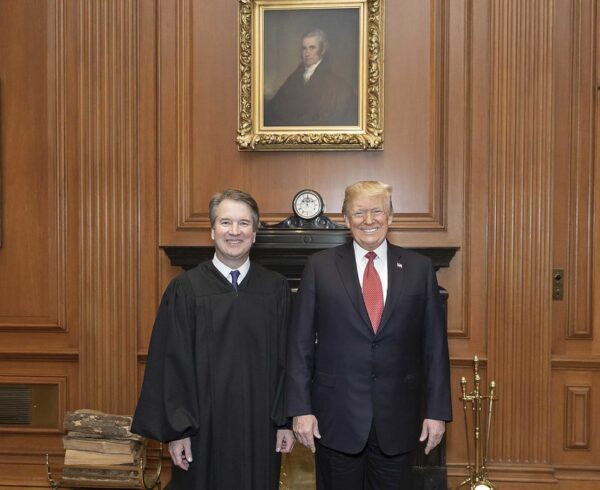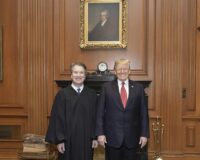Mea culpa, mea maxima culpa: I voted for Mr. Donald J. Trump in the 2016 presidential election.
During the 2016 electoral season, Andrea and I were residents at Brookdale Becket Meadows, an assisted living facility, in Austin, TX. The Travis County Board of Elections designated Becket Meadows as an early voting center and assigned six voting machines with election officials to the facility, thereby allowing us to vote in advance of the Nov. 08 election date. The date we voted, therefore, was well before the former and unlamented Director of the FBI, James Comey, interfered with the election for president and arguably—intentionally or unintentionally—contributed to Ms. Hillary Rodham Clinton’s loss to Mr. Trump. Even so, I believe Ms. Clinton’s failed campaign was due much more to her and the Democratic party’s ineptness than to Mr. Comey’s contributions.
The Peril of Forecasting
We cast our votes when most of the media and pollsters predicted Ms. Clinton would be elected President of the United States (POTUS) by a large margin. Andrea, a life-long Democrat with a family history of involvement in Democratic Party politics in Georgia, welcomed these predictions. I had an opposite reaction. Andrea and I have lived in several areas of the United States. Whenever a state required us to register as Republican or Democratic in order to vote in primary elections, Andrea always specified her party affiliation as Democratic; I always registered as a Republican. I am reasonably confident that Andrea has never voted for a Republican whereas I sometimes have voted for Democratic Party candidates. For example, I voted for William Jefferson Clinton and Barrack Hussein Obama the first times they ran for POTUS. I soon thereafter saw the error of voting for these highly blemished individuals. All of us are flawed; however, these two persons suffered from such a plethora of flaws that I believe they became irrevocably unsuitable for the presidency, despite some of their better qualities.
I could not bring myself to vote for Ms. Clinton whose well-documented culpabilities rendered her the most unqualified Democratic Party candidate in my 61 years of voting. I wanted to be able to say, after the election when her venality and unsuitability for the presidency would become even more stunningly obvious, “I did not vote for Ms. Clinton.” Convinced that Ms. Clinton would be elected president, I voted instead for Mr. Trump. In retrospect, I could have voted for one of the minor party candidates, left the ballot line for POTUS blank, or even written in Sen. Barry Goldwater’s name as I have in other elections. My preferred candidate in the 2016 Republican Party primaries was Governor John Kasich of Ohio.
No Illusions, No Delusions
I voted for Mr. Trump without any illusions or delusions about his character and abilities. In several private conversations with different people during the 2016 electoral campaign, I made clear my negative feelings about Mr. Trump and his lack of qualifications for the presidency. I also stated that Mr. Trump’s hubris would, with a very high probability, negatively impact his relations with Congress and even individuals within the Executive Branch. Such harmful personal relations would impede passage of the GOP and President Trump’s legislative agenda. Because of the negativity and, even, outright hatred surrounding Mr. Trump, I also expressed concerns that he would be assassinated before he became POTUS. I have even more apprehensions about this possibility now that Mr. Trump has been elected.
A Constitutional Election
President Trump was elected through the Electoral College, despite his loss of the popular vote. I know this outcome flummoxed, even terrorized, many people; however, our Constitution remains the ultimate law of our democratic-republic and no one has yet provided legal justification that the election was un-Constitutional. I believe the Russian government attempted to influence the election in Mr. Trump’s favor, which in my opinion constituted an act of war, the very limited effects of this interference notwithstanding. I think it more probable than not that Mr. Trump and/or members of his campaign staff colluded with the Russians in these efforts. According to Alan Dershowitz, professor emeritus of Harvard Law School and a noted supporter of liberal causes and candidates, e.g., Ms. Clinton, such collusion—even if proven—is not illegal under the Constitution.
The Constitution provides citizens of this country with the right to elect good or bad, even very bad, politicians. We have elected some individuals from both major parties in the past who served abysmally as POTUS. Our democratic-republic survived these regrettable administrations, we will survive President Trump. We may argue that President Trump’s policies have been damaging, dishonorable, illiberal, and racist; but, despite many citizens’ abhorrence, these policies have not been ruled un-Constitutional by the Supreme Court of the United States. We should keep in mind that President Trump and his administration have been remarkably ineffective in securing legislative approval for their agenda.
No Sympathy
The forces unleased during Mr. Trump’s presidential campaign and his presidency were present in a significant portion of “his base” long before the 2016 elections. Mr. Trump and his campaign staff were sufficiently astute that they figured out how to appeal to, and mobilize, this base. I have no sympathy for neo-Nazis, Alt-Right individuals, private militia groups, or mistaken Christian fundamentalists that form part of President Trump’s core supporters. I think many of these individuals do not actually like President Trump but, rather, anticipate what they think he might do as POTUS. I am disturbed that President Trump, while supporting the legitimate aims and justifiable resentments of the majority of his base, does not appear able to conclusively and without prevarication denounce these groups that pose great danger to our democratic-republic. Similarly, I have no sympathy whatsoever for socialists, communists, and the various Alt-Left groups that play an increasingly powerful role in the Democratic Party and who pose an even greater threat to our democratic-republic.
Unrealized Hope
I had hoped President Trump would respond positively to the gravitas of his office and subdue, if not control, many of his more obnoxious personality traits. These hopes have been dashed: President Trump continues to act in many ways as if he were a petulant and insecure teenager with his often-stated inconsistencies, his remarkable and frequent abusive use of Twitter, his appointing family members to high level positions within his administration, his inability to reciprocate loyalty to individuals who are loyal to him, and his proclivity to engage in unnecessary conflicts when the better course of action would be to keep his mouth shut and Twitter feed closed. For a while, I was willing to consider President Trump’s actions exemplified the negotiating style he brought with him from the business world, particularly from the New York City business milieu. While open to argument, especially because we’re still in the early phases of his presidency, I am now convinced that these traits markedly inhibit this administration’s capacity to function efficiently. I am, of course, not qualified to render a compelling professional diagnosis of dangerous mental illness that might lead to President Trump’s inconsistencies. From my layman’s perspective, I do not believe he is mentally ill, at least in terms of the 25th Amendment to the US Constitution.
Lack of Constancy
President Trump seems to be constant in only one major aspect of his personality—his inconstancy. Constancy to President Trump may mean persistence or tenacity in his own aims, which some individuals will contend does not align with the higher aims of the presidency or of the nation. We must hope that President Trump will come to exemplify constancy in the sense of integrity, of passionate adherence to ethical principles in every aspect of his life, and of character that stays firm in the face of national and international vagaries that could be detrimental to our nation. That is, we must encourage President Trump to listen to, and act upon, the influence of his “better angels.”
Constancy of purpose and action definitely require President Trump to yield to his “better angels” concerning the potential (probable?) armed conflict with the Democratic People’s Republic of Korea. While we may have defensible reasons according to Just War Theory in going to war with the DPRK, taunts and juvenile behavior should not lead us to military conflict—the subject of another post.
The Folly of Pursuing Impeachment
Absent clear and overwhelming evidence of Constitutional “high crimes and misdemeanors,” I do not support the impeachment of President Trump. I understand “high crimes and misdemeanors” under the Constitution will be defined by articles of impeachment brought forth in the House of Representatives. That is, political considerations are embedded on the impeachment process. My reading of the current political situation suggests the House of Representatives is highly unlikely to transmit articles of impeachment for trial in the Senate: The Republican Party probably will not risk alienating “the base” by impeachment, much less conviction of, President Trump.
The current drive toward impeachment, absent definitive and non-political “high crimes and misdemeanors,” poses great danger to this democratic-republic due to the criminalization of political and ideological disagreement and, further, the use of impeachment to overturn a legitimate election. To quote Prof. Dershowitz, “We must refrain from calling each other criminals when no criminality exists. The difference between outrage and criminality has to be kept sharp. Otherwise, anything you disagree with, if you’re the people in power, you can go after your political enemies. Today it’s Clinton, tomorrow it’s Trump, the next day it’s [Bernie] Sanders, after that it’s you.”
The 2016 elections are over, Ms. Clinton lost and will not become POTUS. Citizens who oppose President Trump should move on from 2016 and focus on electing viable candidates, i.e., persons who can win elections in 2018 and 2020. Similarly, the Republican Party should help pass President Trump’s legislative agenda. That way, we can have a fruitful debate in the forthcoming national elections about the best way forward for our country.
Regrettably and solely from the perspective of a viable two-party system, the Democratic Party is in disarray and may not soon be able to function in any way other than to waste time seeking impeachment of President Trump and complaining about 2016. I am unaware of any Democrat that I could support in the 2018 mid-term elections and for POTUS in the 2020 general elections. Accordingly, this Eisenhower-Goldwater Republican—the party of my youth—most likely will once again face a Hobson’s Choice in the forthcoming elections.










